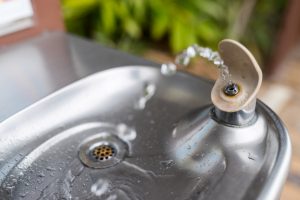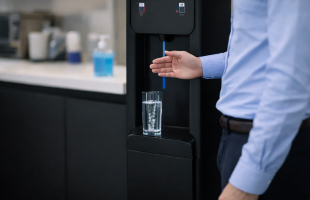Deadline: June 30, 2025

New Jersey schools are once again required to complete lead testing in drinking water as mandated under N.J.A.C. 6A:26-12.4. All regulated educational facilities — including public, private, and charter schools — must comply. But while the state has made testing mandatory, the conversation must go deeper than compliance.
🏫 This Isn’t Just About the Rules — It’s About Responsibility
Every school must complete testing, report results, and take action on exceedances. These are critical steps for state compliance and funding eligibility. But more importantly, this is a matter of health equity and responsibility to our students.
Lead contamination isn’t a matter of if — it’s a matter of infrastructure. Many school buildings across the state still rely on plumbing systems built decades ago, and lead doesn’t just “go away.” Aging pipes and solder joints continue to be a source of exposure.
Even after testing, if the system behind the faucet hasn’t changed, how safe is the next glass of water?
🚰 What the State Requires — and Why It Falls Short
Yes, testing identifies the presence of lead. Yes, public postings and action letters alert the community. But testing is a snapshot in time, not a cure.
What we owe our students is more than checking a box. We owe them safe, clean, great-tasting water—every day.
The Real Solution: Reverse Osmosis (RO)
Reverse Osmosis is the only reliable method for removing lead from drinking water at the point of consumption. Unlike most typical filtration systems that only reduce or trap some lead particles, RO systems use a multi-stage membrane to physically eliminate contaminants — including lead, bacteria, chlorine, microplastics, and PFAS.
🧪 Lead Testing Requirements Overview:
| Requirement | Deadline | Notes |
| Complete testing | June 30, 2025 | Required for every school, even if tested before |
| Post results onsite | Upon completion | Must be visible at the tested location |
| Notify stakeholders | If lead > 15 ppb | Use the state template for all notifications |
| Website updates | Ongoing | Post results & any exceedance letters online |
| Submit Statement of Assurance | June 30, 2025 | Certifies testing, notification, and corrective actions are complete |
Submit a SOA via the NJDOE’s Lead Testing Webpage Today:
https://homeroom6.doe.state.nj.us/watertesting/form25
💧 Compare: Standard Filters vs. Reverse Osmosis
| Feature | Typical Water Filter System | Reverse Osmosis System (RO) |
| Lead Reduction | Partial | Complete removal |
| PFAS, Chlorine, Bacteria | Limited or none | Removes nearly all |
| Taste Improvement | Moderate | Significantly improved taste |
| Multi-stage filtration | Often 1–2 stages | 4–5+ stages |
| Maintenance | Low-moderate | Moderate, but with longer intervals |
| Infrastructure protection | No | Yes – point-of-use protection |
| Ongoing Compliance Support | No | Yes – consistently safe |
🎓 Moving From Testing to Trust
Schools will continue to test and report. But imagine the impact of not needing to worry about those results.
Installing reverse osmosis units at key drinking stations means every child, teacher, and staff member gets clean, great-tasting water every time, without uncertainty.
We should not wait for lead results to decide what’s safe. If there’s one way to remove lead — not just reduce it — we owe it to our youth to act now.
🚨 From Compliance to Commitment: Protecting Students Beyond the Deadline
Lead testing is essential, but it’s only the beginning. Schools shouldn’t settle for minimum standards when the health and trust of our students are on the line. Reverse osmosis isn’t just a best practice — it’s the only proven way to remove lead at the point of consumption.
As the June 30, 2025, deadline approaches, let’s meet our legal obligations — and then go further. Let’s move beyond testing toward real, lasting protection.

Because every student deserves more than a test result — they deserve safe water. Every time.
Contact:
Document Solutions Business Life Simplified
DS Social Media & Marketing Team
Phone: 1-908-653-0600
Website: www.dsbls.com




